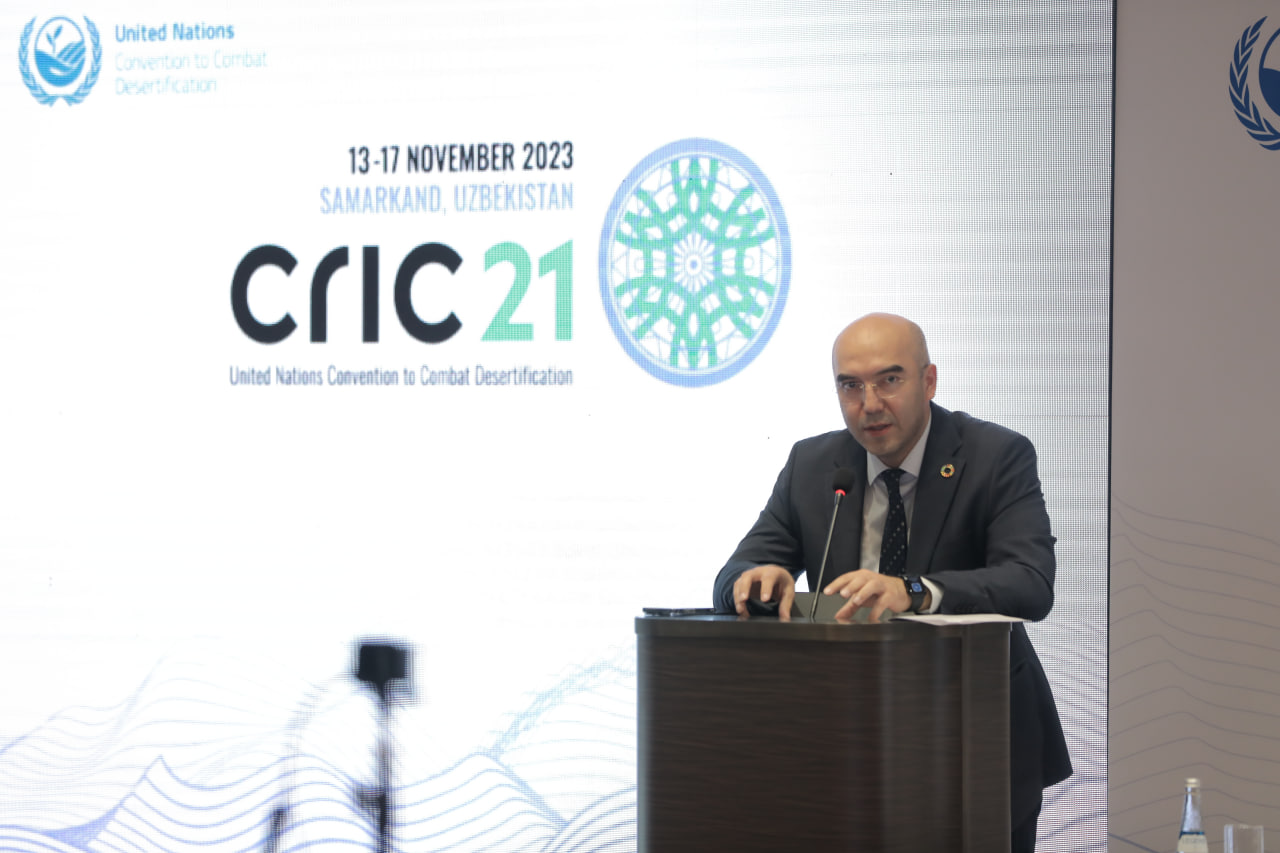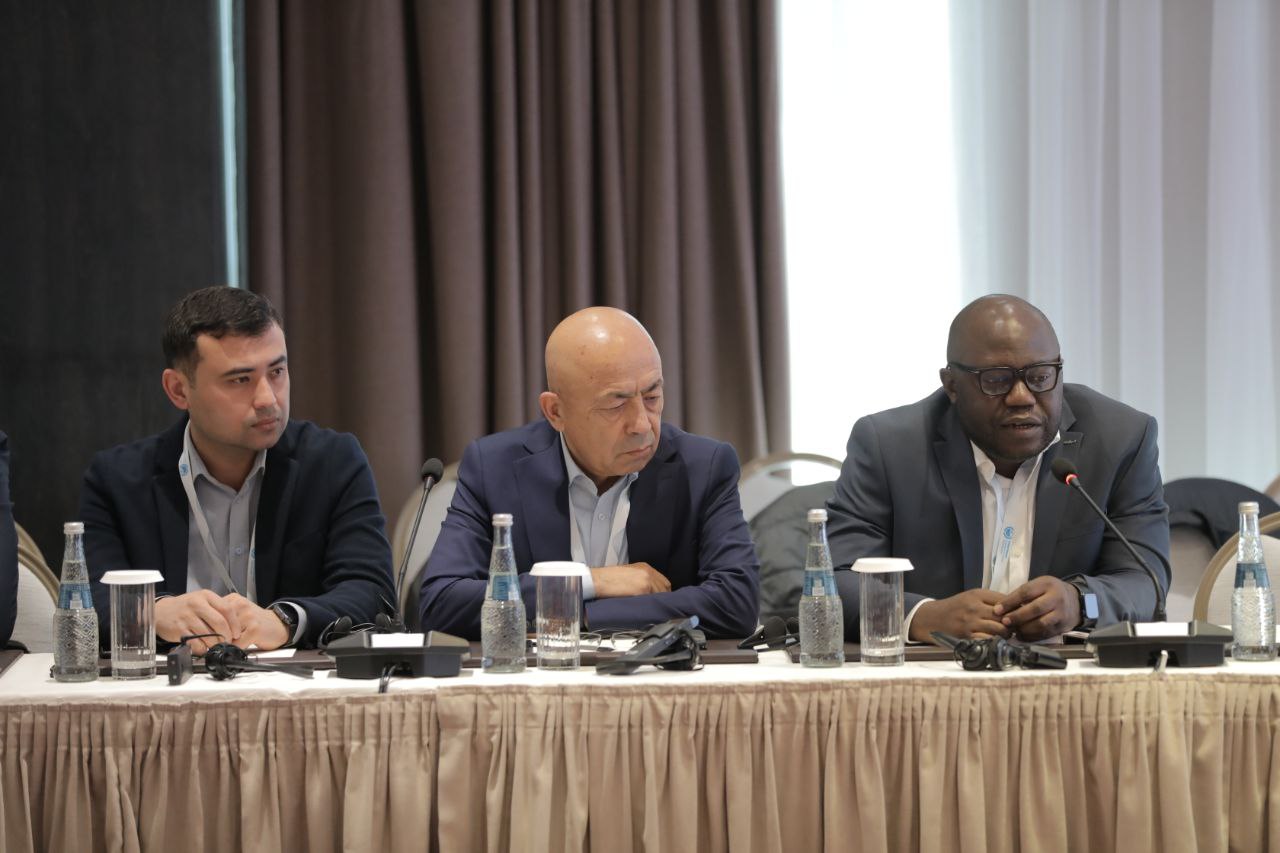
As part of the 21st session of the Review Committee of the UN Convention on Desertification (CRIC-21) in Samarkand, a scientific conference was held with the participation of local and international scientists and experts in the field of ecology.
The event, dedicated to the topic "Can a scientifically based innovative approach to education and land use help mitigate the negative consequences of land degradation and sand and dust storms?" was attended by the Ministry of Ecology, Environmental Protection, and Climate Change, the Institute of Environmental and Nature Protection Technologies, the UNCCD (United Nations Convention to Combat Desertification), representatives of UNDP (United Nations Development Programme), employees of 10 foreign research institutes, independent scientists, and experts.
"The main focus of the event was on education, the importance of science and innovative approaches in combating drought, land degradation, and desertification," said Bahtiyor Pulatov, Director of the Institute of Environmental and Nature Protection Technologies. "We informed foreign experts about the work being done in our country. They were satisfied with the actions taken against desertification in the Aral Sea region, especially the large number of saxaul plants planted. Today, it is crucial to preserve water resources in the fight against desertification. We also drew the attention of scientists to this issue."
During the negotiations, it was noted that dust and sand storms are among the main issues that need to be addressed.
"In the fight against desertification and drought, innovations and new technologies are crucial. We discussed biophysical and socio-economic aspects of various practices and issues such as identifying hotspots of sand and storms," said Feras Ziadat, representative of the United Nations Food and Agriculture Organization. "Our goal is to identify and eliminate factors that cause the appearance of sand and dust because it has a negative impact not only on Central Asia but also on other continents. In particular, sand and dust storms have affected about 151 countries worldwide."

During the event, representatives of universities and research institutions conducting studies on ecology and desertification in Uzbekistan expressed their opinions and suggestions. Representatives of international organizations, such as the UNCCD and UNDP, also discussed opportunities for cooperation and support in the fight against dust and sand storms. In addition, measures to combat desertification in the Aral Sea were on the agenda.
"Since our President raised the issue of the Aral Sea at the UN podium, the international community has paid serious attention to it. Today'sconference discussed climate change, the drying up of seas and rivers, and land degradation. Information was presented about planned and completed work to address the Aral Sea issue," said Bahitjan Khabibullaev, Director of the International Innovation Center of the Aral Sea at the Ministry of Ecology, Environmental Protection, and Climate Change. "Currently, more than 1.7 million hectares of land have been reforested with saxaul. In the future, it is planned to annually plant saxaul on 200,000 hectares of land," he added.
As a result of the event, actions to be taken against desertification and drought in the future were identified.











